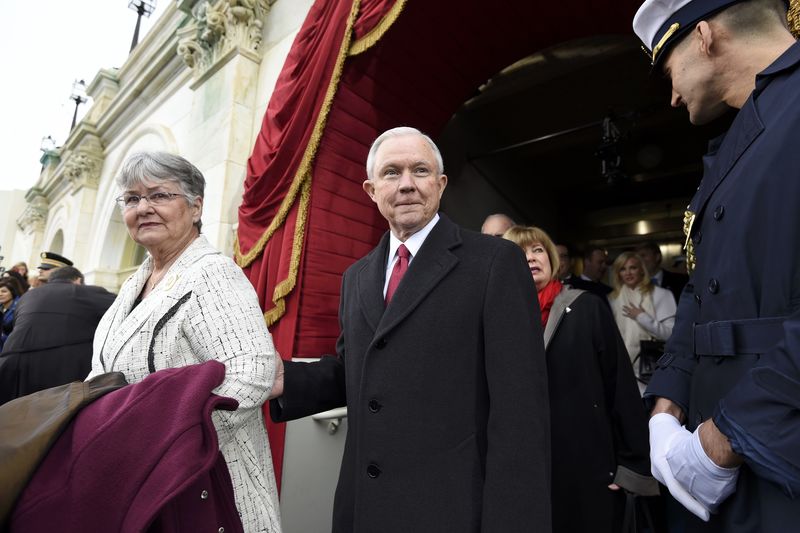By Julia Edwards Ainsley and Julia Harte
WASHINGTON (Reuters) - The U.S. Senate Judiciary Committee voted on Tuesday to confirm Senator Jeff Sessions as attorney general of the United States, sending President Donald Trump's pick to be the nation's top law enforcement officer to the full Senate for a final vote.
The role got a higher profile on Monday night when the Republican president promptly fired acting Attorney General Sally Yates for refusing to enforce his executive order temporarily banning all refugees and travelers from seven predominantly Muslim countries from entering the United States. Yates was a holdover from the Obama administration.
Sessions, a 70-year-old senator from Alabama and a close Trump ally since the early days of his presidential campaign, was likely to support the executive order. One of his former staffers, Stephen Miller, helped shape the document from the White House.
Sessions' allegiance to Trump, his hard-line immigration positions and civil rights record came under scrutiny during his 10-1/2-hour hearing before the committee on Jan. 10.
Trump's Justice Department is likely to operate in sharp contrast to the agency under Obama.
Civil rights groups say the choices Trump has made in his appointments to leadership roles at the department show that the agency is preparing to neglect or even weaken civil rights protections.
Hours after Trump's inauguration, the administration appointed Thomas Wheeler and John Gore to serve as interim leaders in the department’s Civil Rights Division.
Wheeler, the current acting head of the division, defended in private practice a school that confiscated a student’s breast cancer awareness bracelet for being “inappropriate;” a public school that held a Christmas show in which Bible excerpts were read and religious songs were sung; and the Walgreens drugstore chain in a case in which a pharmacist looked up the birth control records of a customer and shared them with the customer’s ex-boyfriend.

Gore, who will serve as deputy assistant attorney general in charge of voting rights and employment litigation, helped defend state election redistricting plans that were challenged on grounds that they violated the Voting Rights Act.